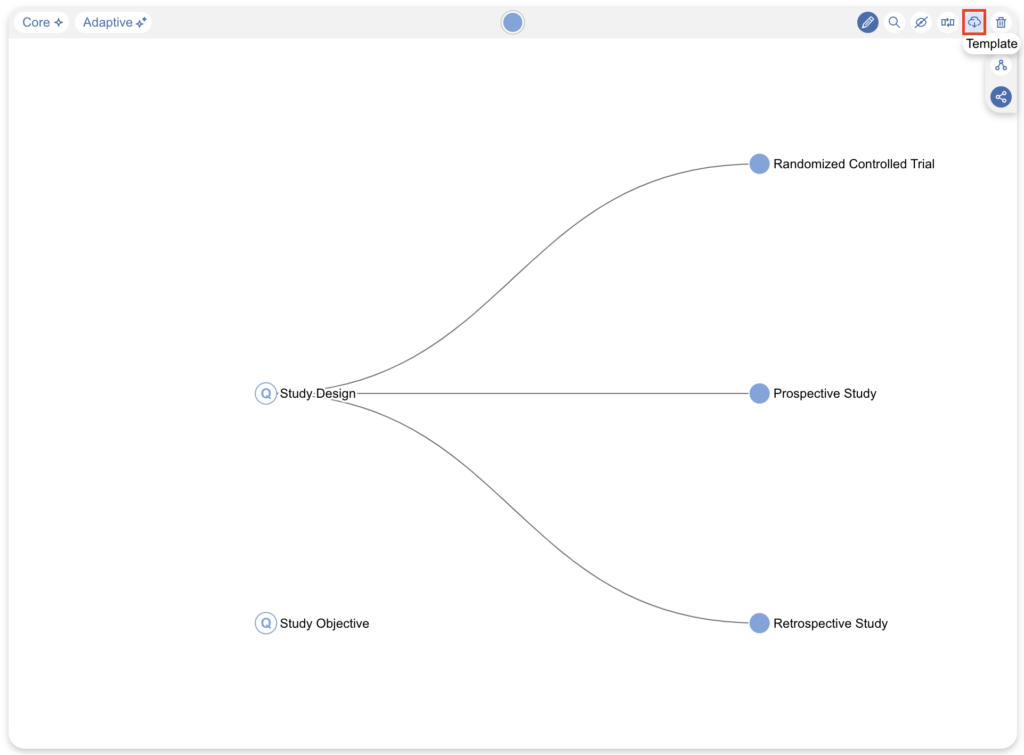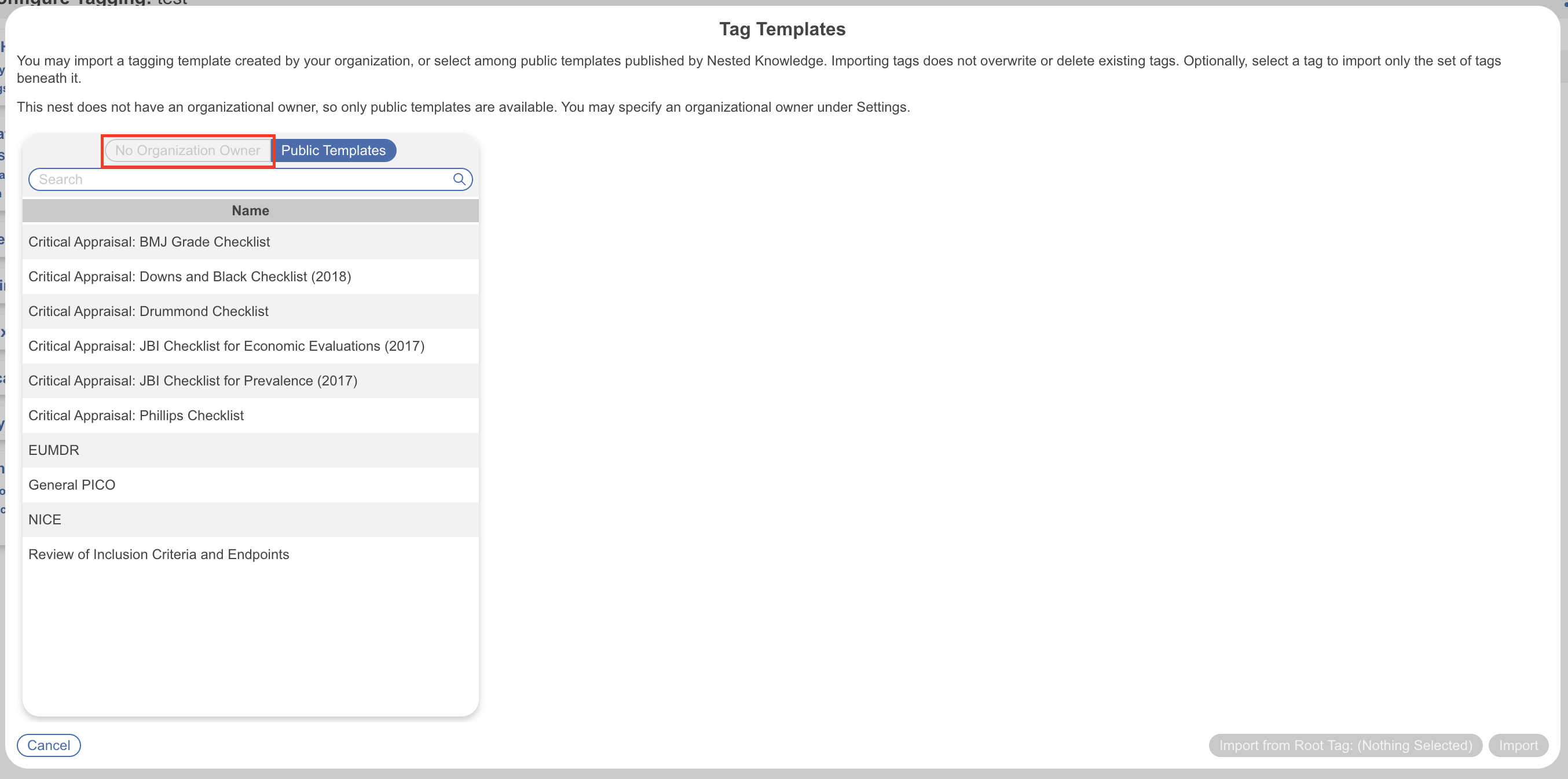When importing a tag hierarchy template, you have the option to import:
- From your organization’s configured templates
- From Nested Knowledge’s public templates
Organizational Templates #
To import from your organization’s configured templates, first, your organization must have available templates. Before importing, you can check this by navigating to your organization page. Select your name/icon in the top right, select Organizations, select your organization and “Tagging” in the menu bar. Here is a list of your existing templates. Learn more on how to create templates here.
Now you have confirmed there are available templates, the next step is to ensure the nest you are importing into is owned by your organization. From the Configure Tag Hierarchy page, select Templates (cloud icon; red):

If the nest has no organizational owner, you will see the following when attempting to import a hierarchy.

To resolve this, simply head to nest settings and assign your organization as owner:

Alternatively, if another organization is shown like Nested Knowledge, this may be because one of our staff may have created this nest for you. In that case, get in touch and we’ll make sure your org is the owner.
Then head back to Configure Tagging, and view Templates:

Select a template of your choosing and import either the entire hierarchy, or select a root tag to import a section of the hierarchy.
Public Templates #
Nested Knowledge has public templates available to all, regardless of whether or not you are part of an organization nor does the nest need to be owned by an organization to be able to use these templates. Simply navigate to the Configure Tagging page, toggle Edit mode (pencil icon) and select Import Hierarchy (central cloud icon) and toggle Public Templates. You can import entire hierarchies or specific sections.

There are several templates available to help all user types get started with their nest and there is no limit on how many templates can be used in a single nest. There are currently two types of public template:
- Study Design: these aim to provide a starting framework for users to build their own specific project around e.g. General PICO provides basic tag questions for Population, Interventions/Comparators, and Outcomes, while EUMDR provides basic tag questions to represent the general structure of a review to satisfy EUMDR regulations.
- Critical Appraisal Tools: while we do offer a range of critical appraisal tools as part of their own module and auto-generated outputs, these are commonly used checklists that users may incorporate into the hierarchy.
Each template has a description and source you may refer to. If you believe we are missing crucial templates that should be public, feel free to post on our feedback board!
